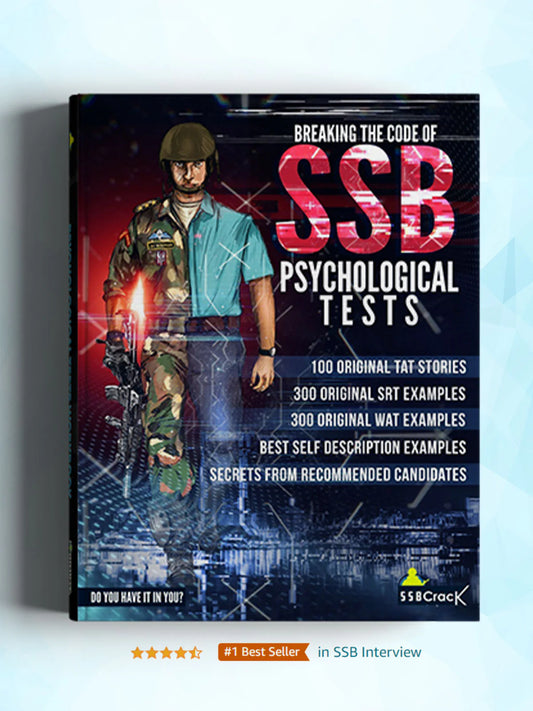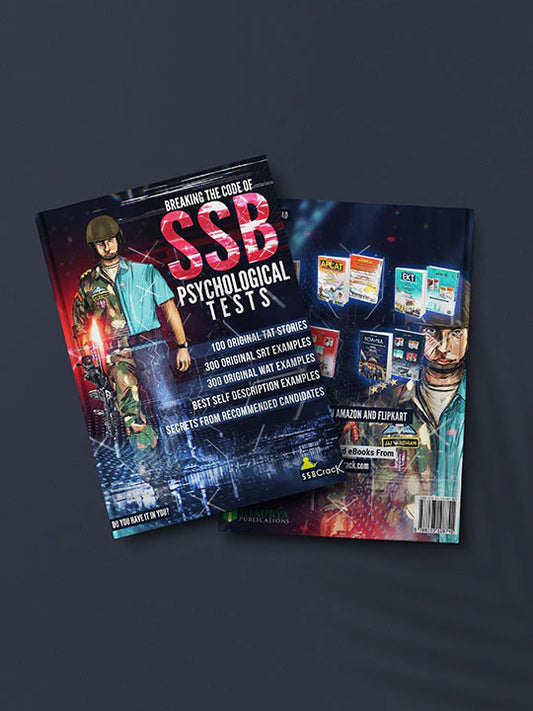NDA Exam Syllabus & Pattern: Everything You Need to Know

Introduction
The National Defence Academy (NDA) exam serves as the gateway for aspiring candidates who wish to serve in the Indian Armed Forces, specifically in the Army, Navy, and Air Force. Conducted jointly by the Union Public Service Commission (UPSC), this examination not only assesses a candidate's aptitude in various subjects but also determines their suitability for a career dedicated to the defense of the nation. The significance of the NDA exam cannot be overstated; it is a critical step in the journey of thousands of young candidates dreaming of a life in uniform.
In a rapidly evolving global security environment, the role of well-trained, disciplined, and strategically minded officers is essential. Thus, understanding the NDA exam syllabus and pattern is crucial for prospective candidates. This article provides a comprehensive overview of the NDA exam syllabus and pattern, ensuring candidates are adequately informed and prepared to embark on this prestigious journey.
Historical Context
The NDA was established in 1954, making it one of the oldest military academies in Asia. Its formation was a pivotal moment in the development of India's defense training framework. Before the establishment of the NDA, officer training was primarily limited to individual military academy commissions, resulting in a fragmented approach to training. The NDA was envisioned as an institution that offers an integrated, comprehensive educational experience, blending the military and academic realms.
Over the years, the NDA has evolved to reflect the changing dynamics of warfare and defense strategies. The curriculum has been adapted to include contemporary subjects such as cybersecurity and modern strategic studies, ensuring that trainees are equipped to face both current and future challenges.
NDA Exam Syllabus
A thorough understanding of the NDA exam syllabus forms the foundation of any effective preparation strategy. The syllabus for the NDA exam is extensive and encompasses various subjects, which can be categorized into two sections: Mathematics and General Ability Test (GAT).
Mathematics Syllabus
The Mathematics paper is compulsory for all candidates applying for the NDA. This section assesses candidates’ proficiency in mathematical concepts and their application in problem-solving. The syllabus includes:
-
Algebra
- Basic algebraic identities
- Quadratic equations
- Linear equations and inequalities
- Permutations and combinations
-
Trigonometry
- Trigonometric ratios
- Heights and distances
- Trigonometric equations
-
Geometry & Mensuration
- Coordinate geometry
- Area and perimeter of 2D shapes
- Surface area and volume of 3D shapes
-
Statistics & Probability
- Measures of central tendency
- Measures of dispersion
- Basic probability concepts
-
Vectors and 3D Geometry
- Basic vector operations
- Dot and cross products
Understanding these topics from a conceptual standpoint, along with practical application, is crucial for candidates aiming to excel in the mathematics section of the NDA exam.
General Ability Test (GAT) Syllabus
The General Ability Test (GAT) consists of two major components: English and General Knowledge, which further includes subjects such as Physics, Chemistry, General Science, History, Geography, and Current Events.
-
English
- Vocabulary: synonyms, antonyms, and idioms.
- Comprehension: reading passages and critical analysis.
- Grammar: parts of speech, sentence formation, and error detection.
- Practical writing skills: précis writing, letter writing, and essay writing.
-
General Knowledge
- Physics: fundamental concepts, units and measurements, motion, optics, and energy.
- Chemistry: basic concepts of matter, atomic structure, periodic table, and chemical reactions.
- General Science: application of science in everyday life, plants, animals, and the environment.
- History: important events in Indian history from ancient to modern times.
- Geography: Indian geography, climate, continents, and ecosystems.
- Current Affairs: awareness of recent developments in India and the world, especially regarding national and international policies and events.
Candidates are encouraged to systematically approach each of these subjects, utilizing books, online course materials from resources like SSBCrack and SSBCrackExams, and practice tests to bolster their readiness.
Exam Pattern
The NDA exam is structured to evaluate a candidate's academic abilities through objective-type questions. Understanding the exam pattern is vital for effective time management and strategic exam-taking.
Paper Structure
-
Total Marks: The NDA exam consists of two papers.
- Mathematics: 300 marks
- GAT: 600 marks
- Total: 900 marks
-
Objective Type Questions:
- Mathematics: 120 questions (2.5 marks for each correct answer)
- GAT: 150 questions (4 marks for each correct answer)
-
Negative Marking:
For every incorrect answer, 1/3 of the total marks allotted to that question may be deducted.
Paper Duration
- Mathematics: 2.5 hours
- GAT: 2.5 hours
Effective preparation demands all candidates approach their revision strategically, focusing on areas where they are weak while solidifying their strengths.
Case Studies or Real-world Applications
To better understand and appreciate the significance of NDA preparation, it’s beneficial to consider the stories of those who have successfully navigated this challenging path.
Example of a Successful Candidate
Rajesh Sharma, a young aspirant from a small town, began his preparation with little knowledge of the NDA syllabus. He utilized online courses offered by SSBCrack, which provided structured lessons and practice papers. Over time, he developed a robust study schedule that balanced mathematics and GAT preparation. Rajesh’s disciplined approach culminated in a commendable rank in the NDA exam, securing him a spot in the prestigious Academy. His journey underscores the importance of targeted preparation and access to quality resources.
Statistical Data and Research Insights
Research indicates that approximately 30% of candidates who sit for the NDA exam qualify successfully. The competitive nature of the exam means that just memorizing the syllabus is not sufficient; understanding concepts and regularly practicing is essential.
Moreover, a recent analysis of success rates highlights that candidates who utilize structured preparatory materials, such as those provided by SSBCrack, tend to score significantly higher than those who rely solely on textbooks. This underscores the value of comprehensive study resources in mastering the syllabus.
Comparative Analysis
While the NDA exam shares similarities with other competitive defense exams globally, there are distinct differences primarily in the approach and subjects covered.
For instance, the US Military Academy emphasizes leadership skills and physical prowess through rigorous physical fitness tests, often focusing more on practical military scenarios in the selection process. In contrast, the NDA exam places heavier importance on academic proficiency in mathematics and science alongside general ability, reflecting India's unique educational landscape and strategic requirements.
Different Study Strategies
-
Join Coaching Classes vs. Self-Study:
- Coaching Classes: Enroll in a structured program, like those offered by SSBCrack, for dedicated guidance.
- Self-Study: Use books and online resources with a disciplined and self-motivated schedule.
-
Peer Study Groups vs. Individual Preparation:
- Peer Study: Engage in discussions to clear doubts and learn collaboratively.
- Individual Preparation: Tailor your pace and study style according to personal comfort, possibly resulting in deeper understanding.
Each approach has merits, and candidates must consider their learning preferences, as well as educational resources available to them.
Challenges and Solutions
Candidates aspiring to join the NDA frequently face various challenges:
-
Heavy Syllabus Load: The extensive syllabus can be overwhelming.
Solution: Create a structured timetable that allocates time for each subject, ensuring ample review before the exam.
-
Time Management: Many candidates struggle to complete the exam in the given time.
Solution: Regular practice with timed mock tests can significantly improve speed and efficiency.
-
Exam Anxiety: The pressure of performing well can lead to anxiety during the exam.
Solution: Practice relaxation techniques and simulate exam conditions during study sessions to improve confidence.
By proactively addressing these challenges, candidates can enhance their chances of success.
Future Trends and Predictions
As India continues to evolve in its defense strategies, future NDA examinations may witness changes in question styles and focus areas. Adaptations could include a greater emphasis on technology-related subjects, such as cybersecurity or AI in military operations, reflecting the global trend towards digital warfare.
Increased incorporation of psychological assessments to test candidates’ mental resilience may also characterize future examinations, reflecting an awareness of the rising importance of psychological fitness in military roles.
Conclusion
The NDA exam remains a cornerstone of India’s defense strategy, shaping the future leaders of the Armed Forces. By comprehensively understanding the NDA exam syllabus and pattern, candidates can approach their preparation with the right mindset and strategy.
From mastering core subjects in mathematics and general knowledge to engaging with credible preparatory resources such as SSBCrack and SSBCrackExams, thorough preparation is key to success. As aspirants look toward the future, they must remain adaptable and resilient in overcoming challenges posed by the rigorous examination process.
Call to Action: Interested candidates are encouraged to utilize the full range of study materials available from SSBCrack and SSBCrackExams to aid in their preparation. Engage in practice tests, participate in discussions, and employ strategic study methods to not only clear the NDA examination but also to excel beyond it, serving the nation with honor and distinction.



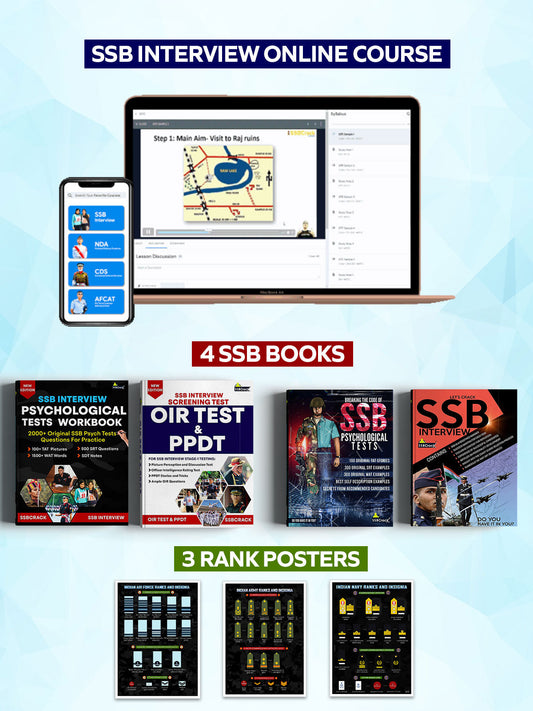

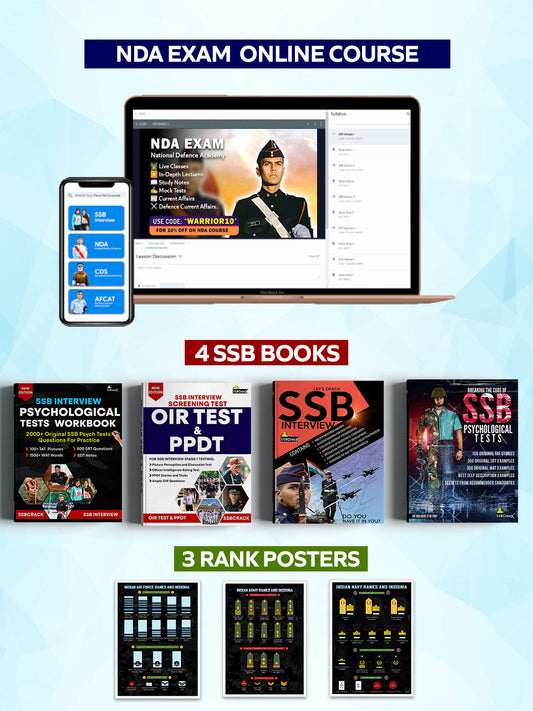

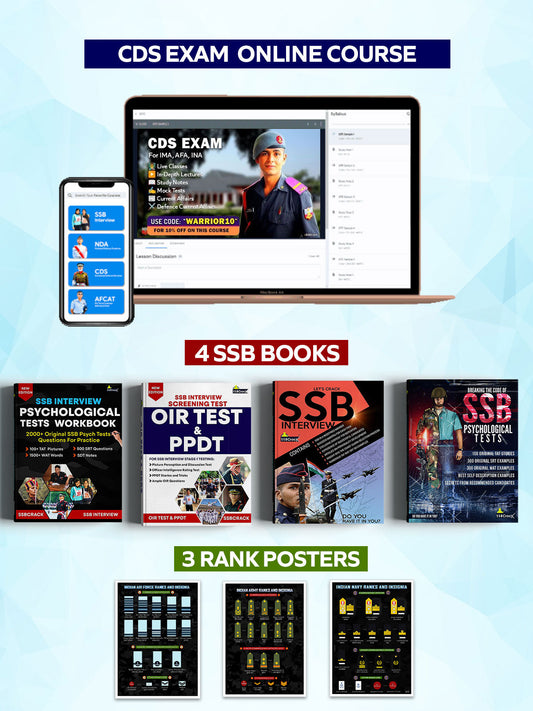

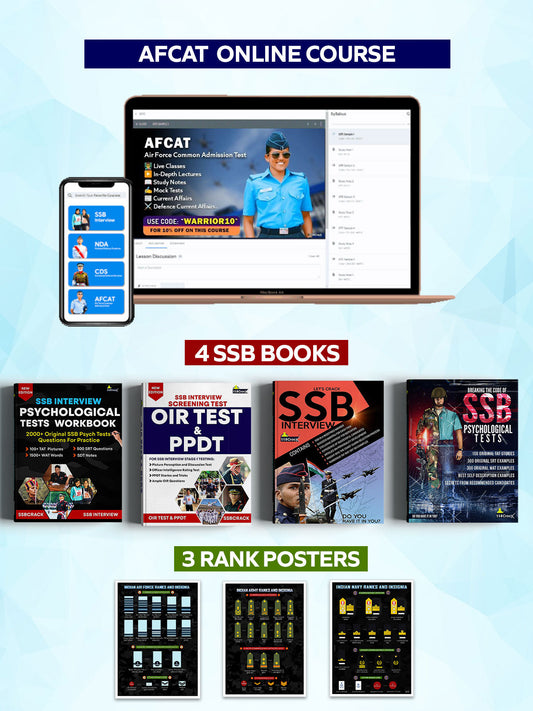

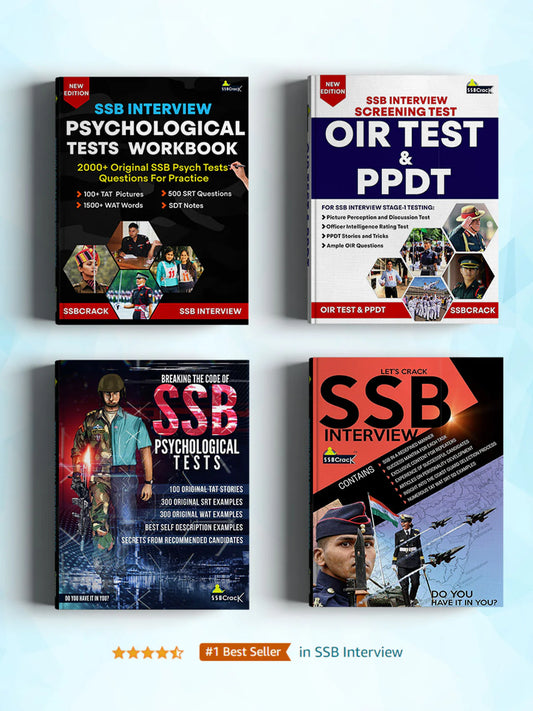

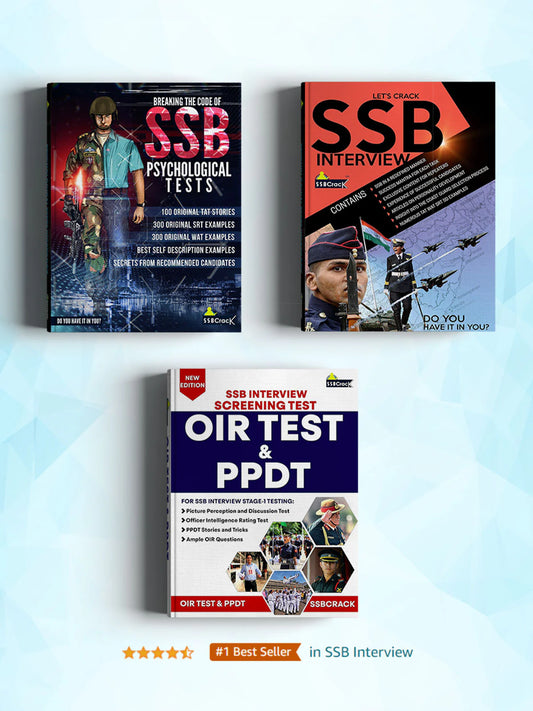

![Let's Crack SSB Interview Book [Paperback]](http://shop.ssbcrack.com/cdn/shop/files/ssb-books.webp?v=1736351621&width=533)

